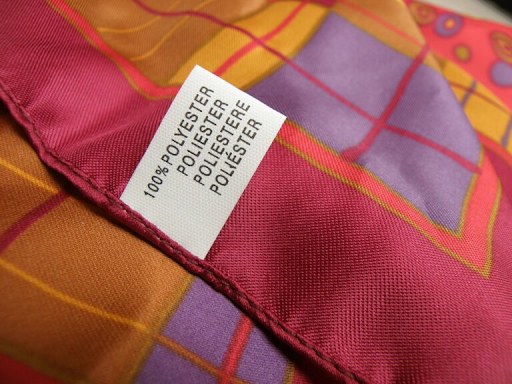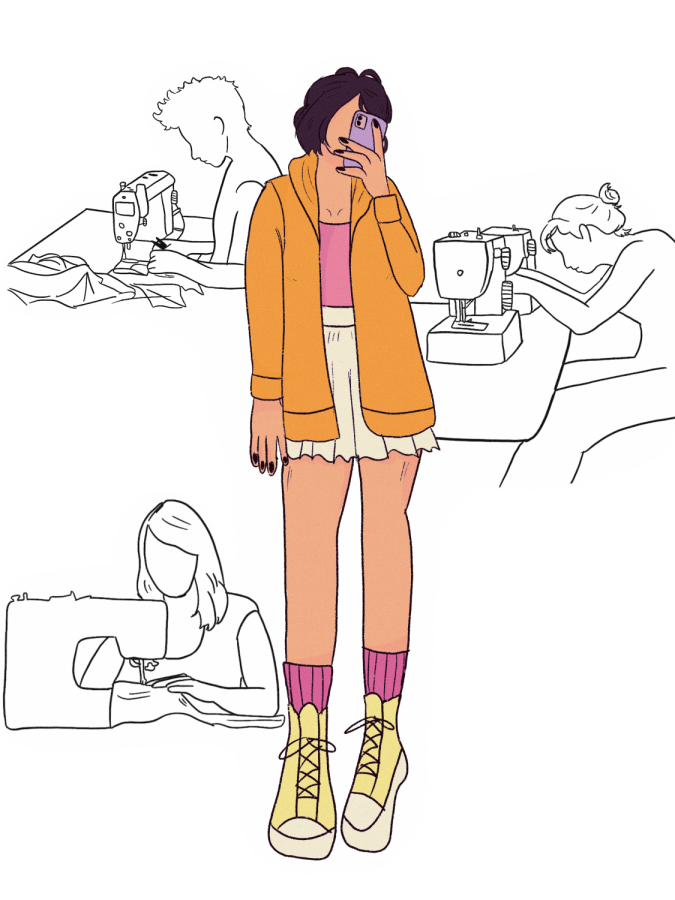Mostly everyone has heard of polyester and most people’s closets are full of it, but not many people know that polyester, in all its soft, versatile glory, is a plastic created by a mixture of chemicals in a lab. Plastic is an immortal pollutant, instead of biodegrading, merely gets smaller and smaller and only more damaging to the planet and its inhabitants.
For starters, transitioning to a polyester free closet for sustainability’s sake means holding onto and repurposing as much of your polyester as you can; using them until they’re unusable, and then recycling them for something else. Throwing out polyester doesn’t get rid of it, it only makes it end up in a landfill.
Other fabrics like silk and cotton seem like reasonable alternatives, and while cotton is reasonably sustainable, its process requires a lot of water. Silk, on the other hand, is made from the cocoons of silk moths which we have modified to the point of being incapable of living in the wild. The silk is collected by boiling the silk moths alive and separating the dead moths from their silk spun cocoons. It's not hard to see why silk is not the most sustainable or ethical fabric decision. For example, silk, leather relies on the death of animals and even vegan leather is made out of plastic, similar to polyester, but there are sustainable types of leather made out of materials like pineapple, cork, mushroom, teak leaf, cactus, and recycled plastic. Fleece is another material made from plastic and while it’s possible to buy material made from recycled plastic, the fact still stands that plastic does not ever biodegrade. A warm replacement would be wool and cotton, though it takes a lot of water to produce a single kilogram of either. Wool has more environmental impact than cotton in terms of water use and clearing land. Be aware, when buying cotton or wool products, that the industries are hardly cruelty free and make sure to check your sources for cruelty free markings on their websites and packaging.
Some of the most sustainable fabrics, with consideration to water use, renewability, fossil fuel use, harm to animals, chemical use, land use, and global warming contribution seem to be bamboo, linen, hemp, and Econyl. Bamboo grows quickly and doesn’t need to be replanted and is incredibly soft, linen is made from flax which is completely biodegradable but a long lasting fabric that gets softer and more comfortable with reuse, Econyl is made from recycled plastics which keeps plastic and it’s particulate matter out of our air and landfills, and hemp which, in addition to being renewable, actually puts nutrients back into the soil it’s grown in. To avoid the environmental effects of the clothing you love, thrifting is an abundant resource.
These fabric materials are by far some of the most sustainable, however, at the end of the day, making sure that clothing is not chemically processed is one of the most important health decisions people can make for themselves, other people and the earth.














Recent Comments